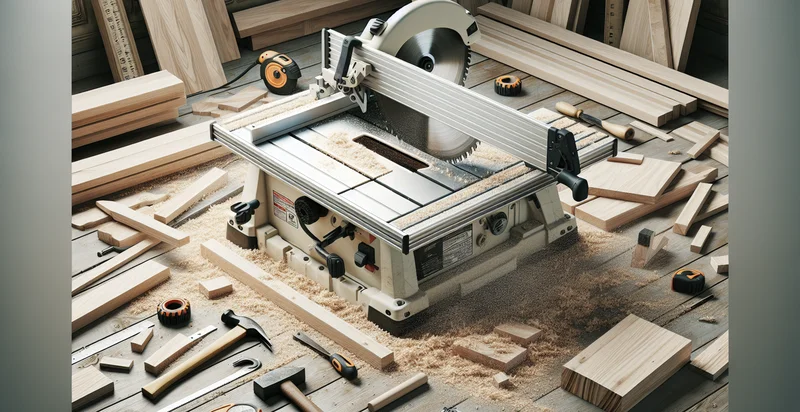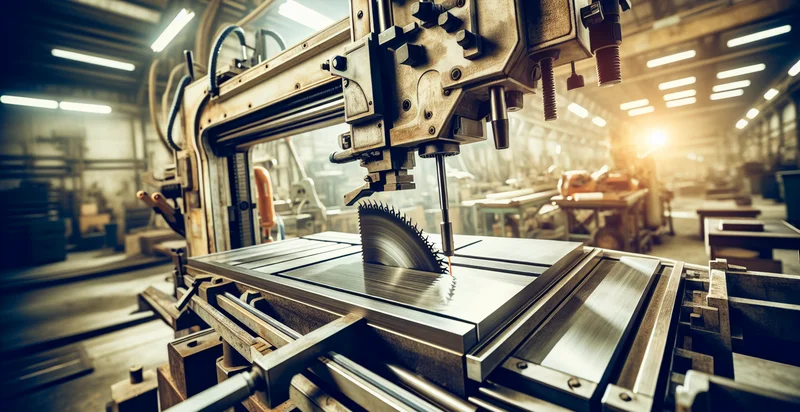Identify table saw conditions
using AI
Below is a free classifier to identify table saw conditions. Just upload your image, and our AI will predict the optimal operating conditions for a table saw. - in just seconds.

Contact us for API access
Or, use Nyckel to build highly-accurate custom classifiers in just minutes. No PhD required.
Get started
import nyckel
credentials = nyckel.Credentials("YOUR_CLIENT_ID", "YOUR_CLIENT_SECRET")
nyckel.invoke("table-saw-conditions", "your_image_url", credentials)
fetch('https://www.nyckel.com/v1/functions/table-saw-conditions/invoke', {
method: 'POST',
headers: {
'Authorization': 'Bearer ' + 'YOUR_BEARER_TOKEN',
'Content-Type': 'application/json',
},
body: JSON.stringify(
{"data": "your_image_url"}
)
})
.then(response => response.json())
.then(data => console.log(data));
curl -X POST \
-H "Content-Type: application/json" \
-H "Authorization: Bearer YOUR_BEARER_TOKEN" \
-d '{"data": "your_image_url"}' \
https://www.nyckel.com/v1/functions/table-saw-conditions/invoke
How this classifier works
To start, upload your image. Our AI tool will then predict the optimal operating conditions for a table saw..
This pretrained image model uses a Nyckel-created dataset and has 12 labels, including Clean Condition, Damaged Condition, Dirty Condition, Excellent Condition, Fair Condition, Functional Condition, Good Condition, New Condition, Non Functional Condition and Poor Condition.
We'll also show a confidence score (the higher the number, the more confident the AI model is around the optimal operating conditions for a table saw.).
Whether you're just curious or building table saw conditions detection into your application, we hope our classifier proves helpful.
Related Classifiers
Need to identify table saw conditions at scale?
Get API or Zapier access to this classifier for free. It's perfect for:
- Safety Compliance Monitoring: This function can help manufacturers ensure that their table saws are operating under safe conditions. By identifying false images of unsafe practices or conditions, it can alert staff to potential hazards and maintain compliance with safety regulations.
- Training Module Enhancement: Integrating this classification function into training programs can improve education on table saw safety. It can differentiate between safe and unsafe operational behaviors, helping trainees to better understand the risks involved.
- Preventive Maintenance Alerts: The identifier can recognize and classify images that indicate the need for maintenance based on worn or defective components. This proactive approach helps reduce downtime and prolongs the life of the equipment by addressing issues before they become serious.
- Quality Control in Manufacturing: In a production environment, this function can assist in quality control by identifying poorly set up or malfunctioning table saws. Consistent monitoring can ensure that cutting operations meet high-quality standards, minimizing waste and defects.
- Operational Analytics for Efficiency: By analyzing images captured during operations, the identifier can provide insights into workflow efficiency. Understanding table saw conditions can lead to process optimizations, ultimately improving productivity in manufacturing environments.
- Incident Investigation Support: When accidents occur, this function can aid in the investigation by analyzing images leading up to the incident. By identifying false images, it can help determine whether procedural breaches or equipment failures were factors, contributing to improved safety protocols.
- Remote Monitoring Solutions: This function can be integrated into remote monitoring systems for table saws in various locations. By providing real-time analysis of equipment conditions, businesses can oversee multiple sites, enabling quicker responses to any identified issues and enhancing operational oversight.


